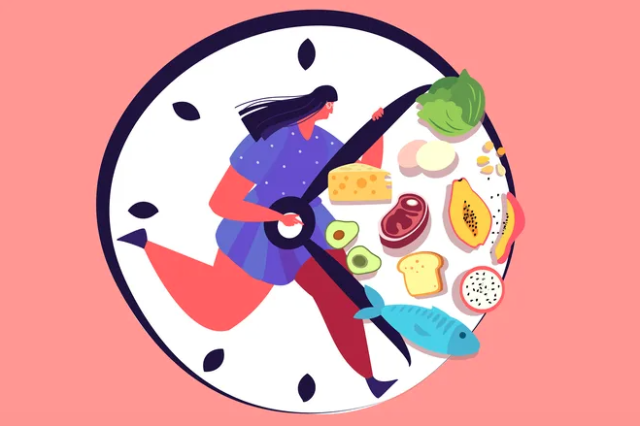The intermittent fasting system captivates with its simplicity: the day is divided into two unequal parts: one is for eating, and the second is for fasting.
Intermittent fasting wisely: 6 mistakes that prevent you from losing weight

Intermittent fasting is a fashionable nutrition system that allows you to get rid of extra pounds without serious restrictions. At the same time, you can not even reduce the total caloric content of the diet, the main thing is to eat according to the schedule. But you also need to be able to starve! We collect typical mistakes of beginners and suggest how they can be corrected.
There are, however, options for fasting one or two days a week, but the essence remains the same: you live according to a strict schedule and refrain from eating at certain times. Everything would be fine, but not everyone succeeds in losing weight with such a regimen. And the reason for this is the mistakes in intermittent fasting. Let’s look at what they are and how you can avoid them.
1. Choosing the wrong schedule
A common mistake of interval nutrition is not to correlate the schedule with your lifestyle. Meals should match your activity level, work schedule, and sleep patterns. In the case of fasting, the window when you can eat should fall on the period when you need it most. For example, if you get up early and move most of your work to the first half of the day, a hearty breakfast is important to you. And if everything happens in the evening, then dinner. If you plan to fast two full days a week – choose those when the activity level is not very high.
2. Immediately rush into battle
You need to start gradually. When you immediately force the body to eat nothing for a whole day, it produces a lot of cortisol, which will slow down weight loss and have a bad effect on immunity. Many people break off diets because they are very out of their usual way of life. In order not to make this mistake with intermittent fasting, it is best to start with a 12-hour fast (for example, from 8 pm to 8 am) and gradually increase the time by half an hour every 2-3 days. And be sure to consult with your doctor before the start of the epic!
3. Eat little
A common mistake with intermittent fasting is literally starving yourself. There are no calorie restrictions in intermittent fasting, so there is no need to eat crumbs and feel bad. The body, not receiving food for half a day, successfully gets rid of excess, but it still needs fuel! Of course, it is best to eat right, and soon you will notice that the portions have become smaller, and the feeling of fullness lasts longer.
4. You drink little
Water is very necessary during intermittent fasting, it flushes out excess from the body. You can drink it with or without food! of course, we are talking about water, not soup or sweet juice (liquid food is still food, and drinking juice, soda, or milk during “hungry” hours are intermittent fasting mistakes).
5. You abuse fast food
Since intermittent fasting does not have a list of prohibited foods, some beginners abuse junk food. But you should not do this: firstly, intermittent fasting only works due to a calorie deficit, and if you choose fast food, then it may not be. Secondly, it is better to get energy from nutrient-rich foods. To avoid this mistake of interval eating, try to provide yourself with wholesome food at the right time.
6. You play sports fanatically
With intermittent fasting, mistakes usually relate to the diet, but you also need to train wisely. Physical activity on intermittent fasting will not hurt, but only if you treat them sensibly. You should not, for example, train intensively in the morning on an empty stomach – it’s not far from fainting. You should choose a moderate mode of exercise, especially at the very beginning of intermittent fasting. And watch your well-being: if you get too tired, then change cardio for a leisurely walk.